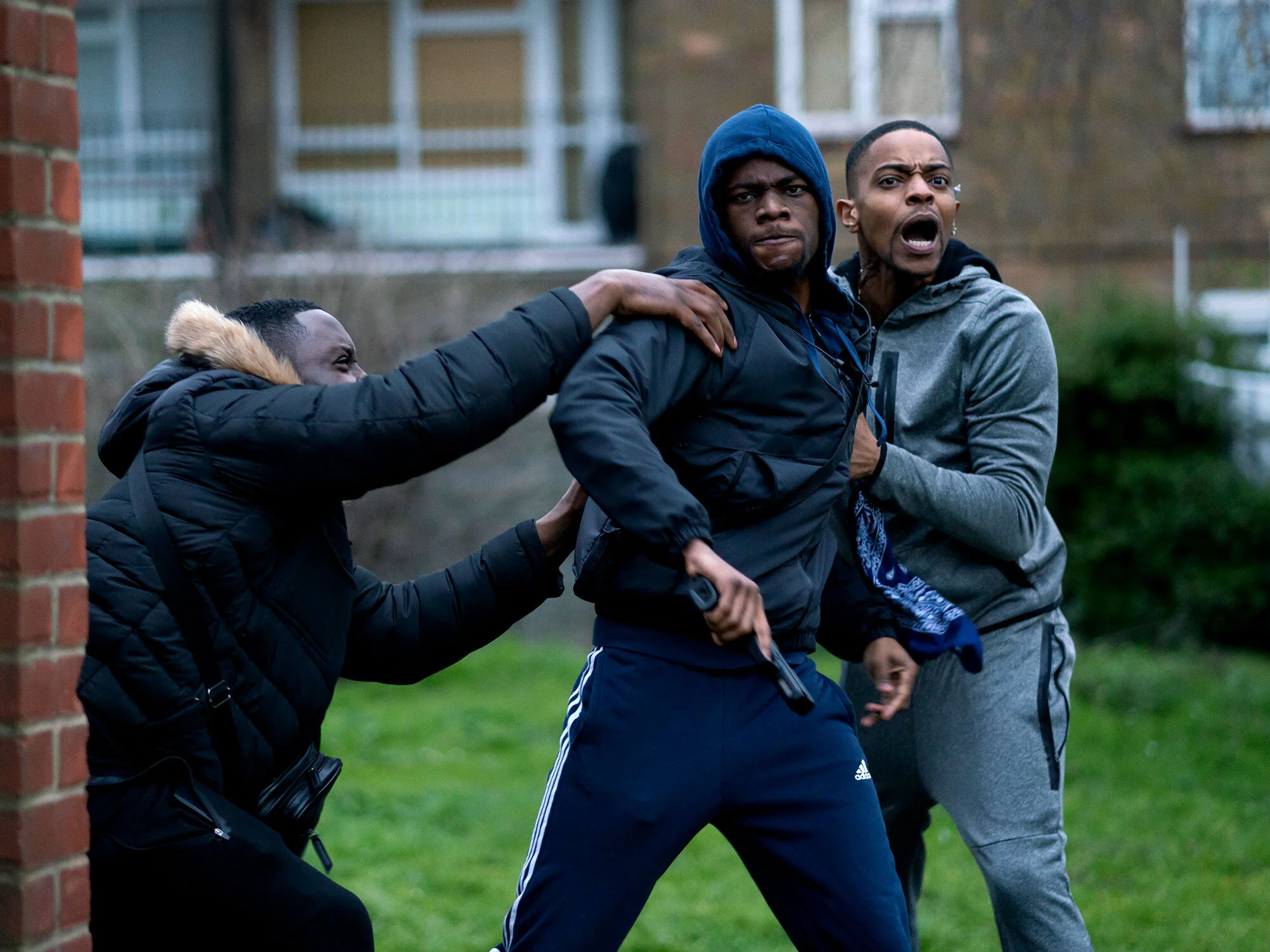Blue Story (2019)
REVIEW BY: ROBERT CHANDLER
Rapman's BLUE STORY lands on screens today (Fri 22 Nov) and it's very good. The film sprang from his web series, SHIRO'S STORY, which told of rival postcode gangs in South London. The web series racked up millions of viewers, enough to warrant Paramount and BBC Films getting behind the debut feature from the rapper/writer/director.
The film has a vitality and energy that places it alongside such inner-city debuts as Scorsese's WHOSE THAT KNOCKING ON MY DOOR, Nicolas Winding Refn's PUSHER, Mathieu Kassovitz's LA HAINE, John Singleton's BOYZ N THE HOOD.
That's a substantial list. BLUE STORY has rough edges but these do not get in the way; in fact they add to the story being told of two school-friends in the same gang, who end up on opposite sides. The rivalry is sparked by the split loyalties that arise from simply knowing the wrong person, ie an old friendship with a gang member in a different postcode. The consequent mistrust and paranoia provoked by such an association forms around the constant vigilance that has become a central part of protecting one's life or family, and tips the characters into violence.
The violence - from the outside - is wanton and cold, and shifts inevitably from knives and fists to guns. Rapman's skill with BLUE STORY is taking the viewer inside the different circles so one can see why the violence is warranted and necessary. And why walking away is barely an option.
Stephen Odubola as Timmy, Micheal Ward as Marco, Karla Simone Spence as Leah - the three leads - are excellent. The other gang members, Switcher, Hakeem and Madder (their names evoking the gang in Brighton Rock) are all brought to life vividly and memorably by the cast.
If there's a downside to the film, I'd say it was that the territories that are being fought over are not allowed to distinguish themselves on-screen. Peckham, Deptford and Lewisham all blend into one location. On one hand, this adds to the senselessness of the territorial delineation, reminding the viewer that it's not really turf that is being fought over and killed for, but something deeper and more elemental. On the other hand, though, I wanted to see what it was that marked out these postcodes. I grew up in Deptford and Lewisham and was keen to see them on-screen. The truth of the matter is that the film wasn't able to shoot in certain areas in those boroughs because of the threat level. Other areas had to stand-in, which is a shame.
The street language used by the characters is never simplified for wider understanding and adds to the energy. Rapman appears occasionally as an on-screen Greek Chorus commenting via rap on the proceedings (I would have happily had more of this). And I liked the way the gun battles were depicted. It told me they were filmed by a director who has experienced such things. The details were telling: the way the guns were held, how shots were fired, the way the bullets hit, the sounds.
BLUE STORY is gripping and vital. I'm loathe to use the word authentic because it feels condescending and is too frequently bandied around in film and drama meetings nowadays. Yet it is authentic and it never feels compromised. It represents the emergence of a new voice in film. It will be interesting to see what Rapman does next.

